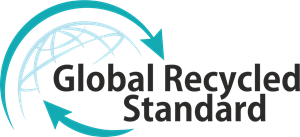Based in Karachi, Pakistan, Datini is a material science company that transforms post-consumer cotton sweaters into high-quality recycled fibers.

Step into the Future of Fashion with DCotton
DCotton combines sustainability and creativity to deliver premium recycled cotton fibers that are soft, strong, and versatile. With an impressive palette of 48 vibrant shades, our advanced recycling technology eliminates the need for re-dyeing, significantly reducing environmental impact. These fibers empower manufacturers to craft designs that meet the growing demand for eco-friendly fashion while preserving quality and variety.



Driving Global Change with Sustainable Wool Repurposing
Sustainability
Quality
Innovation
Performance
Versatility
Soft . Colourful . Sustainable .
Soft . Colourful . Sustainable .
Soft . Colourful . Sustainable .
Soft . Colourful . Sustainable .
Soft . Colourful . Sustainable .
Be Eco-Conscious
While trendy and affordable, the fast fashion industry poses significant environmental challenges. From excessive carbon emissions to microplastics polluting oceans, its impact on the planet is undeniable. Water waste and energy-intensive production processes amplify the problem, solidifying fashion as a major global polluter.
Carbon Emissions
Fast fashion accounts for 10% of global carbon emissions, according to the BBC. At Datini, we combat this by recycling post-consumer wool and cotton, reducing the need for virgin fibers and lowering the carbon footprint.
Ocean Pollution
Synthetic fibers contribute to 35% of oceanic microplastics. By focusing on natural materials like recycled wool, we reduce dependency on synthetics, minimizing microplastic contamination.
Water Waste
Toxic dyes containing mercury, cadmium, and lead pollute waterways, causing severe health issues. At Datini, we use water free methods to recycle textile waste. This does not only saves water but also mitigates water toxicity.
Adverse Impact
The United Nations ranks fashion as the second most polluting industry globally. Datini addresses this by embracing a circular economy, diverting textile waste from landfills and conserving resources.
Fuel-Intensive Practices
Transforming plastics into textiles demands high energy and releases harmful chemicals like hydrogen chloride. Our approach eliminates reliance on petroleum, opting for alternatives that prioritize environmental well-being.
